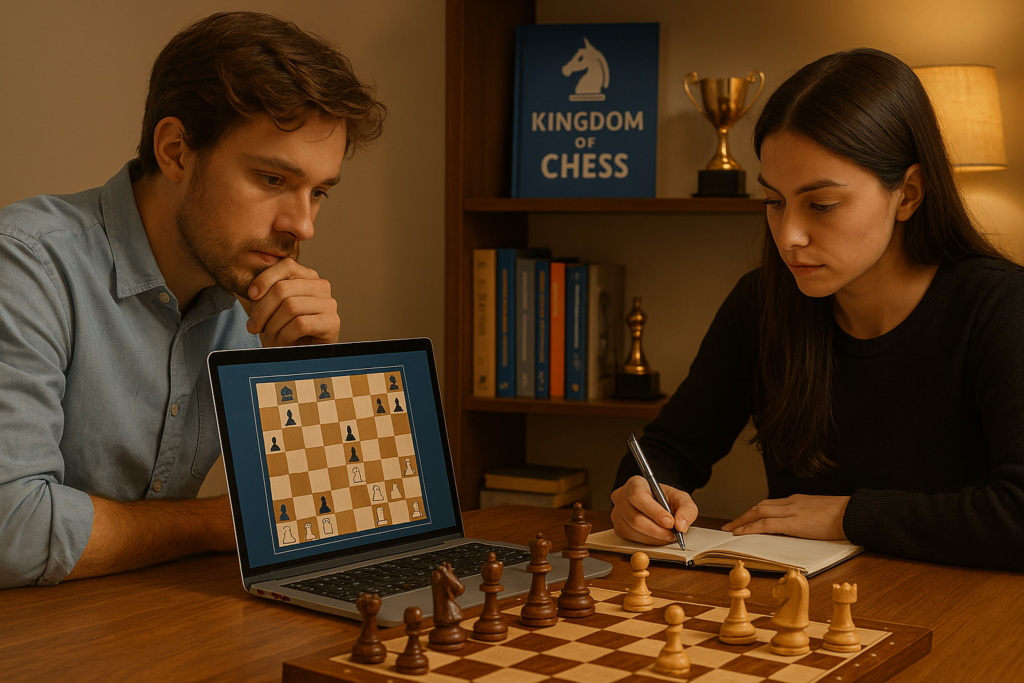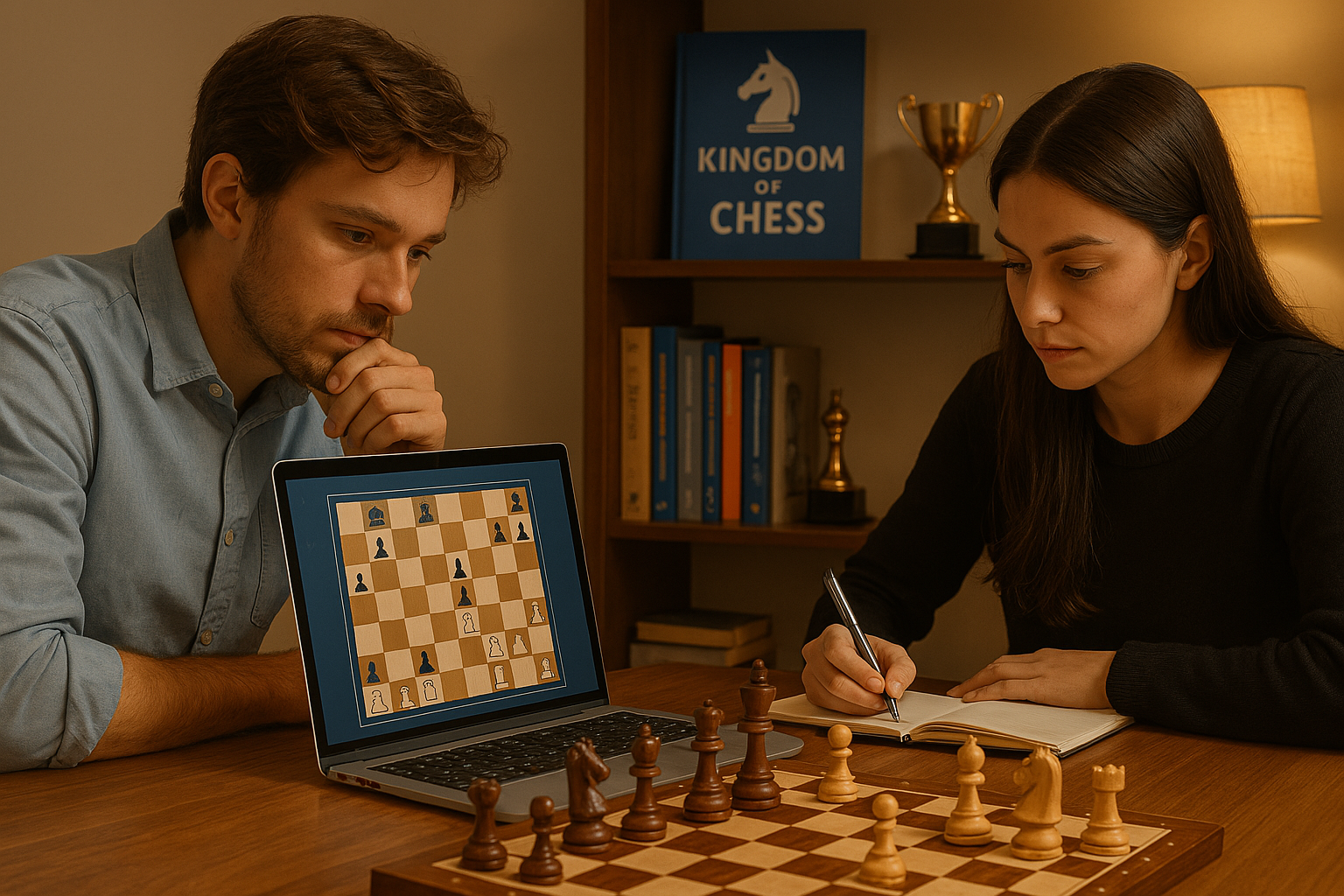What is chess?
Chess is more than just a game of quick tactics or instinct. It’s a game of strategy, patience, and constant learning. One of the most powerful ways to improve at chess—whether you’re a beginner or an experienced player—is through game analysis. Chess analysis helps players reflect on their decisions, spot recurring mistakes, and build better strategies for future games. This article explores what chess analysis is, how to do it effectively, tools to use, and why it’s a game-changer for improvement.
What is Chess Analysis?

Chess analysis is the process of going through a completed chess game to evaluate the moves, decisions, and overall strategy. It helps players understand both their strengths and weaknesses. This analysis can be done manually or with the help of computer engines.
There are two main types of chess analysis:
- Pre-game preparation: Focused on openings, opponent study, and preparing lines or traps.
- Post-game review: Evaluating your completed games to identify mistakes and find better alternatives.
The goal is to extract insights that will help you make better decisions in future games.
How to Analyze a Chess Game (Step-by-Step)
Effective chess analysis isn’t about letting an engine tell you where you went wrong. It’s about understanding why. Here’s a practical way to approach it:
1. Replay the Game Without Engine Help
Start by replaying the game on your own. Recall your thoughts and reasoning at each move. This helps recreate your mindset during play.
2. Identify Key Turning Points
Look for moments when the balance of the game shifted significantly. These are often where mistakes or missed opportunities occurred.
3. Segment the Game
Break the game into three parts—opening, middlegame, and endgame—and analyze each section separately. This helps you focus on specific aspects of your game.
4. Spot Blunders and Inaccuracies
Identify where things went wrong. Understand why a particular move was bad, and what better moves were available.
5. Evaluate Candidate Moves
At critical points, ask yourself: “What other moves were worth considering?” This helps you develop deeper decision-making skills.
6. Write Notes or Annotations
Document your analysis, including your thoughts, mistakes, lessons learned, and new ideas. This reflection reinforces learning.
Tools for Chess Analysis
Several tools make chess analysis easier and more effective. Here are some of the most popular ones:
- Lichess.org: Offers free engine analysis, centipawn loss, blunder detection, and opening insights.
- Chess.com: Features a comprehensive Game Review tool with visual feedback on mistakes, inaccuracies, and great moves.
- Stockfish: A powerful open-source chess engine that powers most online platforms.
- DecodeChess: Provides AI-generated, human-readable explanations of why a move is good or bad.
- ChessBase: A professional database tool for deep analysis and preparation, widely used by top players.
Chess Classes for Advanced Players – Kingdom of Chess
Manual vs Engine Analysis
Both manual and engine-based analysis have their own advantages.
Manual Analysis:
- Strengthens independent thinking.
- Encourages recall of your in-game reasoning.
- Improves pattern recognition and decision-making.
Engine Analysis: analyse chess online
- Accurately detects tactical and positional mistakes.
- Quickly points out better alternatives.
- Provides objective evaluations.
Best Practice: Analyze the game manually first, then use an engine to verify and fine-tune your understanding.
Common Mistakes in Chess Analysis
Many players fail to benefit from analysis because of these common errors:
- Relying only on engines without understanding their suggestions.
- Skipping thought process review, missing out on internalizing mistakes.
- Overlooking patterns that repeat across multiple games.
- Ignoring time usage, which is critical in practical play.
Awareness of these mistakes allows for more meaningful and productive analysis sessions.
How Chess Analysis Helps You Improve
Regular analysis delivers long-term benefits that go beyond fixing a few mistakes:
- Improved pattern recognition for tactics and positional themes.
- Stronger strategic understanding, especially in complex middlegames.
- Refined opening preparation, tailored to your playing style.
- Better time management, by learning where you tend to overthink or rush.
The more you analyze, the more instinctive and accurate your decision-making becomes.
Free chess analysis for Different Levels
Your level of play influences how you should analyze your games:
Beginners:
- Focus on basic tactics, missed checkmates, and blunders.
- Use simplified tools and take time to reflect after each game.
Intermediate Players:
- Analyze middlegame plans and pawn structures.
- Compare your ideas to engine suggestions and master games.
Advanced Players:
- Dive into complex positions, subtle strategies, and opening novelties.
- Use databases and explore multiple lines deeply.
No matter your level, the key is consistency.
Analyzing Famous Games
Studying classic games is a great way to absorb high-level ideas. Choose annotated games by strong players and break them down using your own analysis approach. For example:
- Fischer vs Spassky (1972): Learn about strategic buildup and positional play.
- Kasparov vs Topalov (1999): Explore brilliant tactical combinations.
- Magnus Carlsen’s Endgames: Understand precision and subtlety in seemingly equal positions.
These games help you recognize what excellence looks like on the board.
Conclusion
Chess analysis isn’t optional—it’s essential for anyone serious about improving. It turns your games into lessons, your mistakes into insights, and your instincts into intuition. Whether you’re just starting out or chasing grandmaster norms, analyzing your games regularly will accelerate your progress.
Start with your last played game. Use one of the free tools, reflect on your decisions, and discover how much you can learn from a single game.
Frequently Asked Questions (FAQs)
1) What is the best tool for chess analysis?
Lichess and Chess.com are both excellent and free. For serious study, ChessBase is the go-to tool for advanced analysis.
2) How do grandmasters analyze their games?
They annotate games manually, dive deep into positional evaluations, and only use engines to confirm or challenge their ideas.
3) Can chess analysis help beginners?
Absolutely. Even reviewing just a few mistakes helps beginners understand where they went wrong and how to avoid the same pitfalls.
4) Is engine analysis enough?
No. While helpful, engine suggestions don’t explain “why.” Human understanding and self-reflection are essential to truly improve at chess.



